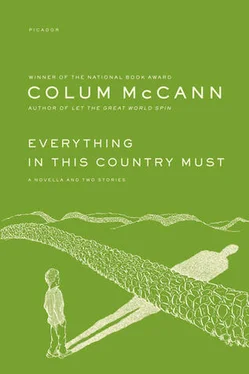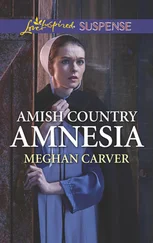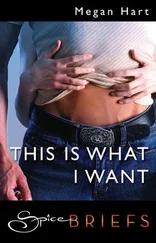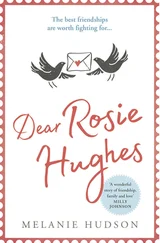She started a new game but he coughed hard.
Why won’t you talk about it? he said.
I’d rather not.
That’s stupid. It’s stupid here. I hate it.
His mother sighed and twisted a lock of her hair around her finger. Her hair was extraordinarily black against the whiteness of her hands.
What does political status mean anyway?
It means they say it’s a war. That they’re prisoners of war and they should be treated like prisoners of war. If it’s not a war then they’re just criminals.
Of course it’s a war. Jesus.
Thatcher says it’s not, so they can’t get political status.
Tin-knickers?
She chuckled. Tin-knickers, aye.
He noticed that she spoke with her old northern accent and he was happy. He put the chess piece to his nose and smelled it, the tomato sauce it had been dipped into.
I’m going to write him a letter, said the boy.
He can’t get letters.
Why not?
It’s one of their rules.
I don’t care about their rules, said the boy. I’m going to write him a letter and send it to Grandma and she’ll smuggle it in for me.
And what’ll you say?
I’m going to tell him how to make a chess set.
Your uncle would like that, she said.
He could use all the bread they give him.
Yes.
He could dunk it in water.
Yes he could.
He’d have lots of time. He could shape them.
He could, yeah.
She sat forward in her seat and reached across and touched his face, stroking it very tenderly with her fingers. At the touch he immediately withdrew and her hand hovered in midair and he could see that she had been biting her nails.
That’s not good, he said. You won’t be able to play the guitar.
Oh, she said.
She was surprised by his comment and how old he sounded, and she withdrew her hand and began once again to wrap her hair around her fingers.
Are you going to get a gig?
What’s that? she asked, distracted.
Are you going to get a gig in the pub?
I’ll maybe ask tomorrow.
Are we really going to stay here?
For a while anyway, maybe.
I’m sick of beans on toast.
She rolled her eyes with great exaggeration and said: It’s stupid here.
He stared at her, confused, and then she jostled him on the shoulder and they both smiled.
Come on, she said, let’s play another.
The boy repositioned the chessmen. His mother showed him how to play a fool’s mate and after three turns he was able to stop it, using the knight that moved like a strange and unassailable drop of blood on the board. As the game went on it was still the only piece she didn’t take. He learned how to protect pawns; at what time to switch the castle and the king; how to form a small army in front of his most powerful pieces; how to keep his finger on the chessman until he had made up his mind.
Does he play chess?
I don’t know.
I could send him letters about it.
Yes, she said, with great sadness.
Would Grandma get them to him?
We’ll have to see.
A clock ticked with painful deliberation on a small shelf above the cooker, and it seemed to the boy that each tick got louder as the night went on.
I bet he’s great at chess.
Maybe he is, she said.
Did he play against Daddy?
When they were young maybe.
Who won?
I’m not so sure, love.
Why not?
Oh, Kevin, she said.
I’m just asking.
His mother allowed him to win a game and he was angry at the ease of it. She lit a cigarette and blew the smoke over his head and he craved one. When she went to put the chess set away he reached for the ashtray and took a quick pull and blew the smoke down between his knees. He fanned the air so she wouldn’t see and then he rose from the table and carefully wrapped his red knight in a piece of aluminum foil from her cigarette pack. He put the knight at the back of the fridge where it was coldest, took a milk bottle from the inside shelf, and pierced the gold metal lid with his finger. He put the bottle to his mouth and drank deep. His mother turned around and watched him as the boy wiped a sleeve across his mouth.
Hey there, she said.
What?
Give me a hug.
She came across and took his shoulders, but he curved himself away from her grip and stepped outside and he could hear her sighing behind him. She called his name but he didn’t turn and she went to the doorway of the caravan, watching him disappearing into the night, where a light drizzle fell. She shouted his name again.
He pulled his shirt over his head and moved farther away to a stone wall that ran like a bad suture toward the sea.
* * *
BACK HOME, there had been protests. Huge crowds lined up, carrying pictures, chanting as they made their way down the street. Once he had gone with his mother. She had held his hand, which was all right because he was still only twelve then. He could feel her nervousness and she kept her head down as she walked, watching her feet. A blue head scarf obscured most of her face. When she introduced herself to another woman she used her maiden name. The boy elbowed her. She leaned down and told him to shush or they would go right home. They moved along with the crowd, his mother sad and weary, talking to him about other marches in the sixties. They had been more hopeful, she said. There was trouble, sure, but it was a different sort of trouble, less menacing, more optimistic. She said the trouble nowadays tasted bitter.
Nobody even knows what a civil right is, she said, and her voice went high as if the past had just escaped her and she was surprised by its disappearance.
After a while, the boy didn’t listen to her, just walked along excitedly. He loved the sound of the voices around him and he carried himself with a sort of bravado. His arms swung by his side. On the ground he found a poster of the Free State with a balaclava painted on it so that the country itself seemed to have the face of a gunman. He picked the poster up and brandished it until the wind took it and it sailed back over the crowd. His mother lit her cigarettes anxiously. Down near the Diamond they heard the first rumors about petrol bombs being thrown farther on down side streets. The boy felt his fingers tingle generously at the thought of fire in the streets, but his mother grabbed his elbow and they immediately retreated home, with her dragging him so that the toes of his shoes were almost ripped by the pavement.
He had tried to dig his heels in and for the first time ever she had slapped him, lightly, on the cheek. They were standing outside a butcher’s shop. It had been burned down earlier that week and a couple of charred carcasses were still hanging on hooks. The boy stared over her shoulder at the meat that dangled in midair. Her light slap still stung his cheek and then he had begun to cry and they walked the streets together, her arm around his shoulder.
At home on Casement Row she locked the door, turned off the lights, and then she began to soak a duvet in the bath as she always did, just in case.
They sat in the darkness and listened to the sounds of the street.
He could tell a Saracen just by the way the wheels sounded against the tarmac. Or the direction of a helicopter by whichever windowpanes were rattling more, front or back. He picked at the stuffing that came from the arm of the couch and secretly spat the yellow sponge across the room. Boys his age were out there, firing stones. He had developed a specific scowl for his mother to see. It involved lifting the left side of his lip and scrunching up the side of his face. The scowl deepened as the riots went on, week after week.
There were all sorts of discussions on the radio as representatives of those on the blanket protest began to talk about a hunger strike. Decriminalization, remission, segregation, intransigence, political status. The words spun around in the boy’s head.
Читать дальше












